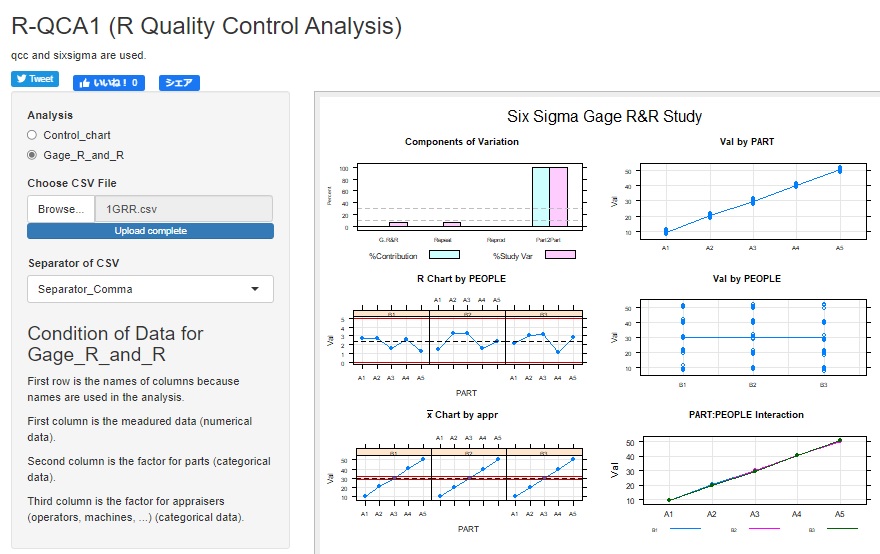
QCA stands for "Quality Control Analysis".
Although R-QCA1 is used only in the field of quality control, it contains essential methods in this field.
The features and weaknesses are almost the same as R-EDA1 . The following is a summary of the contents unique to R-QCA1.

Includes control chart analysis, process capability analysis, certification analysis, and gauge R & R analysis. Process capability functions are bundled with control charts.
The analysis by the test can be used when you want to see the difference before and after the event such as countermeasures.
The above method is not something you can't do with Excel, but it's a lot of work, such as creating graphs. Also, it is not found in general statistical software, but only in some software that covers quality control.
Fortunately, it is covered by R, so anyone can use it for free, but it is not easy because it is R. Therefore, R-QCA1 is the one that I tried to make it easy with Shiny.
Statistical stable state analysis using control charts, gauge R & R , calculation formulas for Cpk and Ppk, etc. are determined by JIS etc., but stable state analysis does not seem to cover all items, and six sigma The Cpk calculation in the library seems to use its own definition formula.
Therefore , I think it is good to use it to narrow down what to do in studying methods and problem-solving procedures , but it is not possible to create JIS-compliant analysis results.
R-QCA1 uses the qcc library for process capability analysis. Cpk has an old definition and a new definition since the advent of Ppk, but for this library, the old definition of Cpk is calculated. By the way, in practice, the new definition of Cpk is not often used, so it may not be necessary to worry too much.
If Rstudio is installed on your PC, you can also say "Run on your PC". Enter the following two lines into the Rstudio Console to start R-QCA1. If you run it on your own PC, an error will occur if there is a library used by R-QCA1 that is not installed. The error message tells you which library is missing. If you don't have one, you need to install it. At first, I think that there are multiple things that are not libraries, so I think that the work of "Error --> Installation" will be repeated.
library(shiny)
runUrl( "https://data-science.tokyo/R-QCA1.zip")
